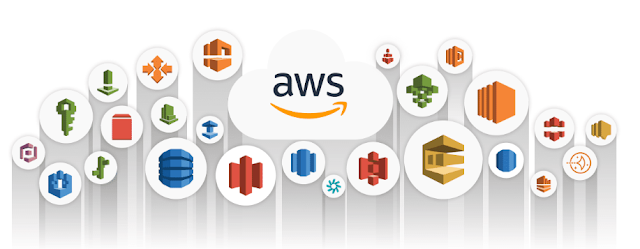Amazon Web Services (AWS) is a comprehensive and widely-used cloud computing platform provided by Amazon.com. It offers a broad range of cloud services, including computing power, storage, databases, machine learning, analytics, content delivery, and more, allowing organizations and individuals to access and utilize computing resources over the internet. AWS is known for its scalability, reliability, and extensive global infrastructure, making it a popular choice for businesses, startups, developers, and enterprises looking to build, deploy, and manage applications and services in the cloud.
Key aspects of AWS include:
1. Computing Services: AWS provides virtual servers known as Elastic Compute Cloud (EC2) instances, enabling users to run applications and workloads in a highly scalable and flexible manner.
2. Storage Services: AWS offers various storage options, including Amazon Simple Storage Service (S3) for scalable object storage, Amazon Elastic Block Store (EBS) for block storage, and Amazon Glacier for long-term archival storage.
3. Databases: AWS provides managed database services like Amazon RDS (Relational Database Service), Amazon DynamoDB (NoSQL database), and Amazon Redshift (data warehousing).
4. Serverless Computing: AWS Lambda allows users to run code without provisioning or managing servers, making it ideal for event-driven and microservices architectures.
5. Networking and Content Delivery: AWS includes Amazon VPC (Virtual Private Cloud) for networking, Amazon CloudFront for content delivery, and Elastic Load Balancing for distributing incoming traffic.
6. Machine Learning and Artificial Intelligence: AWS offers machine learning services like Amazon SageMaker and AI tools for natural language processing, image and video analysis, and more.
7. Analytics: AWS provides data analytics and visualization services, including Amazon EMR (Elastic MapReduce), Amazon Athena, and Amazon QuickSight.
8. Security and Identity: AWS IAM (Identity and Access Management) allows fine-grained control over user access, and AWS offers security services for encryption, monitoring, and compliance.
9. Developer Tools: AWS provides tools for application development, continuous integration, and deployment, such as AWS CodePipeline and AWS CodeBuild.
10. IoT and Edge Computing: AWS IoT Core and AWS Greengrass enable the development of Internet of Things (IoT) applications and edge computing solutions.
11. Global Infrastructure: AWS has data centers and regions in multiple countries, providing low-latency access to resources and the ability to deploy applications globally.
12. Pay-as-You-Go Model: AWS operates on a pay-as-you-go pricing model, allowing users to pay only for the resources they consume without upfront costs.
AWS has a vast ecosystem of services and solutions, making it suitable for a wide range of use cases, from web hosting and mobile app development to big data analytics and machine learning. It has a strong developer community, extensive documentation, and a variety of certification programs to help users get the most out of the platform.


